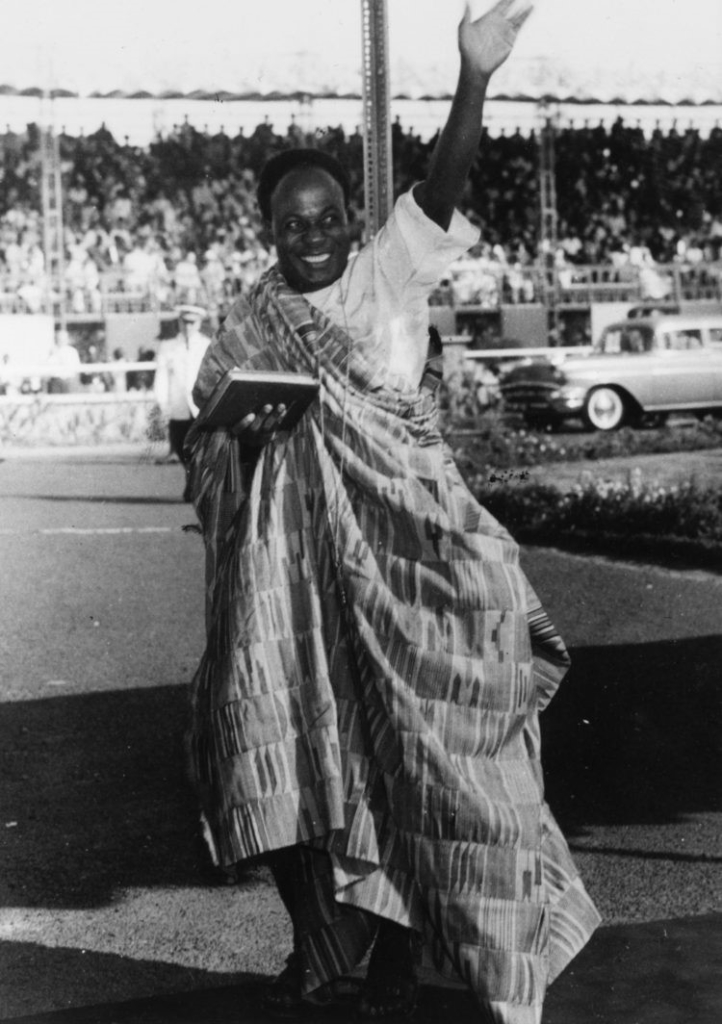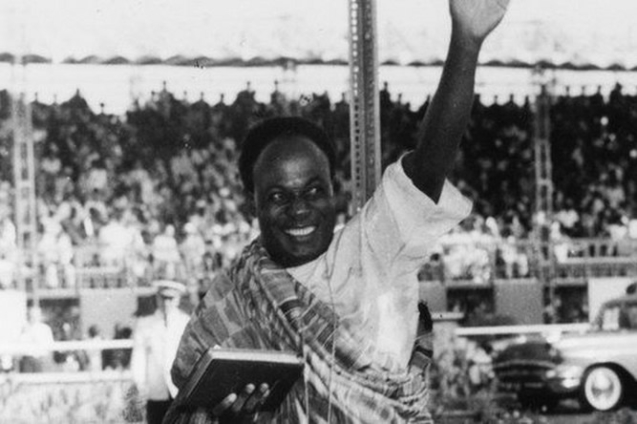Nkrumah’s New African
“For this end Africa needs a new type of citizen, a dedicated, modest, honest and informed man. A man who submerges self in service to the nation and mankind. A man who abhors greed and detests vanity. A new type of man whose humility is his strength and whose integrity is his greatness”
― Kwame Nkrumah, Africa Must Unite
On a cold Wednesday night in Budapest, in April 1972, the man who had become a hero of African liberation, championed continental unity and led his country in the fight for independence was near lonely in a hospital bed, counting his last hours. The few people who were around recall his final words as, “Courage and Dignity”.
Nkrumah had always known what it was to be lonely. For a greater part of his ten years stay in the United States, he was a lonely black student struggling to make ends meet in a society largely unfriendly towards black people. He also knew what it meant to sacrifice temporary comfort for permanent gain.
Today, we are faced with a problem in the world which requires that we make temporary sacrifices for permanent gain. The world is at war with an unseen enemy. And once again, our deficiencies have come to the forefront. As a continent, though our situation is not as dire as other parts of the world, and we have proven more resilient in our fight against this virus, our social structure has exposed us and our inability to cope in difficult times and with minimal external aid.
Nkrumah and other Pan African leaders faced a similar situation at the dawn of independence. They were left on their own, to face the uncertain future that being a free nation presented. They were left to face the challenges of a newly independent nation, to look in the face of adversity and overcome them, and to rise above the mountainous task of nation building.

The situation has brought us back to where we started. To borrow the biblical allusion, we have been given an opportunity by nature to be “born again” and to charter the path that leads to national and continental “righteousness”. In this new path, we forbid the mindset that help may come, so we shall continue to fluff as a people. Throughout the continent, our challenges as Africans have always been similar, and the Osagyefo’s warning, “Unite now or perish” still upholds. As the “born again” we continent we hope to become after this pandemic, may we view this as an opportunity to unite, technologically, economically, intellectually and academically. May we proceed with multiple fountains of knowledge flowing from African minds and institutions, giving us a variety of theories to choose from. Theories that though they differ, are rooted in the fundamental ideology of Pan Africanism. May we have in mind, as the Osagyefo did that, “The dimension of our struggle is equal to the size of the African continent itself.”
African’s social orientation has over the time remained collectivistic, where the wellbeing of one is only as important as the wellbeing of all. We have been called upon once more to live by the African philosophy of muntu ubuntu ngabantu, that a person is a person because of other people. We should move forward with the thought the we rise by lifting others up, and that the liberation of black people everywhere, and the economic progression of Africa is dependent on the collective success, rather than the independent success of all African countries. This is what the Osagyefo, I believe would have wished for us to today.
Forty-eight years after the death of the Osagyefo, we have made progress in attaining his ideals of freedom and independence, but are still far from attaining the ideals of equality and social justice. Many African countries have been unable to build resilient economies that can cater for the social welfare of its citizens. And this is not just a governmental task, but as Nkrumah himself envisioned, “all social groups in the African society have a role to play”. The challenge of totally managing our own affairs, is the biggest statement we can make to the world. Nkrumah himself said during the famous Independence Day speech that, "I made a point that we are going to spiritedly create our own African personality and identity. It is the only way in which we can show the world that we are ready to face our own battles."
In eulogising Nkrumah, it is important to note that the conversation is more about the “we” as Africans rather than the “we” as Ghanaians. This is an image that the Osagyefo continuously projected. This is the image for which he was awarded African of the Millennium. There is no greater way to honour his legacy than for our actions to show that we proceed, especially after this pandemic, in African unity. His words remind us that, “the survival of a free Africa, the extending independence of this continent and the development towards that bright future on which our hopes and endeavours are pinned, depend upon political unity.” This does not mean we will give up our independent sovereignty, but that African states “would continue to exercise independent authority except in the fields defined and reserved for common action in the interests of the security and orderly development of the whole continent.”
To quote Kofi Hadjor, “Nkrumah is a reminder of not what Africa is, but of what Africa must become.” The charge this leaves to the African intelligentsia is the words of Kwame Nkrumah himself, that he spoke during the opening of the Ghana National College in July 1948.
'The Afrikan today is conscious of his capabilities. Educational and cultural backwardness is the result of historical conditions. . . Think! Study hard! Work with sustained effort! As never before we want thinkers - thinkers of great thoughts. We want doers- doers of great deeds. Of what use is your education if you cannot help your country in her hour of need?’
It would be hypocritical to suggest that the Osagyefo was blameless. He was man. But to those who continually find pleasure belittling him, and who seek to disparage his achievements, we echo Amilcar Cabral’s tribute to Nkrumah. “A hand, however big can never cover the sky. Nkrumah’s immortal spirit presides and will preside at the judgement of history on this decisive phase in our peoples’ lives, in lifelong struggle against imperialist domination and for the genuine progress of our continent.” When Nkrumah died, we buried and eliminated forever the toxic saying and belief that Nkrumah was "a great African but a bad Ghanaian."
In conclusion, as we celebrate the Osagyefo forty eight years after his death, we once again acknowledge him, for he told us, “As far as I am concerned, I am in the knowledge that death can never extinguish the torch which I have lit in Ghana and Africa. Long after I am dead and gone, the light will continue to burn and be borne aloft, giving light and guidance to all people.”
***
A. Nii Ayitey Komey is a Pan Afrikanist and an aspiring scholar in African Studies.
Latest Stories
-
Equation Gonja drops ‘Mantindi’ street anthem
21 minutes -
38-year-old man gets life imprisonment for killing Assemblies of God pastor in 2018
36 minutes -
From Shack to Sanctuary: Rotary builds state-of-the-art healthcare facility in Berekuso
48 minutes -
‘Unite for Good’: Rotary International President-elect calls on Rotarians to be a force for unity
51 minutes -
Free speech has limits in national security matters – Law professor weighs in on Adu-Boahene’s trial
59 minutes -
DVLA gives 2-week deadline to register all excavators or face seizure
59 minutes -
Ghana’s FreezeLink gains international acclaim as Bloomberg recognises innovative Agri and Pharma solutions
1 hour -
Garden City University College graduates cohort of Midwifery Research Studies
1 hour -
“We don’t want our AG playing in the mud” – Nana B slams Dr Ayine over A Plus bribery claims
1 hour -
FAGE president calls for targeted policy to support export, agribusiness
2 hours -
African climate activists seek legal clarification on States’ climate obligations at African Court
2 hours -
Man electrocuted during construction works near high voltage line
2 hours -
IGP promotes armwrestling champion Grace Minta from Inspector to Chief Inspector
2 hours -
Interior Minister presents 60 pickups, 20 motorbikes to police for 24-hour economy security
2 hours -
Exam malpractice a national security threat – WAEC warns
2 hours

